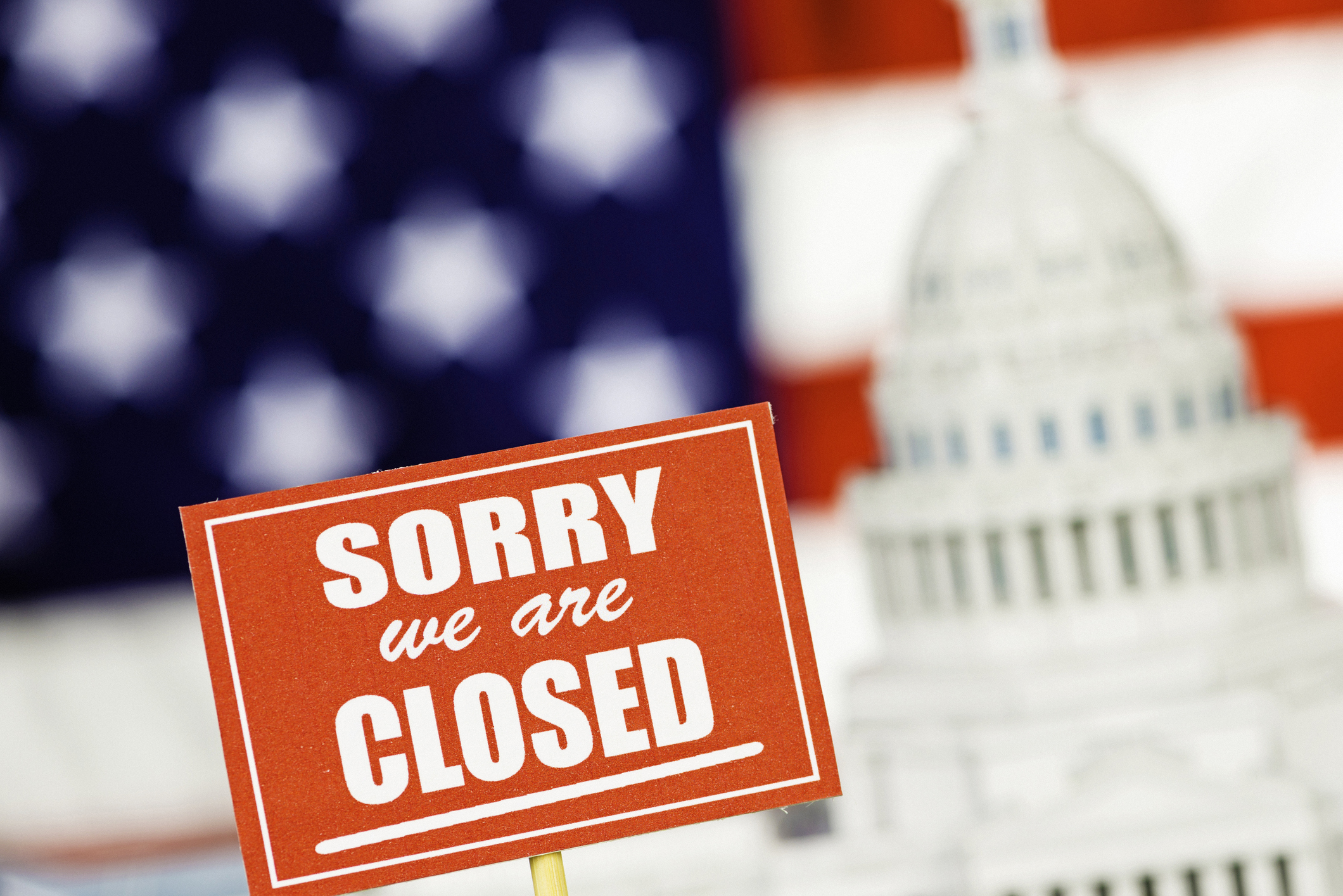White House Aims to Limit Access to Short-Term Health Plans: The Kiplinger Letter
The Biden administration's draft rule would restore several Obama-era regulations.

Profit and prosper with the best of Kiplinger's advice on investing, taxes, retirement, personal finance and much more. Delivered daily. Enter your email in the box and click Sign Me Up.
You are now subscribed
Your newsletter sign-up was successful
Want to add more newsletters?

Delivered daily
Kiplinger Today
Profit and prosper with the best of Kiplinger's advice on investing, taxes, retirement, personal finance and much more delivered daily. Smart money moves start here.

Sent five days a week
Kiplinger A Step Ahead
Get practical help to make better financial decisions in your everyday life, from spending to savings on top deals.

Delivered daily
Kiplinger Closing Bell
Get today's biggest financial and investing headlines delivered to your inbox every day the U.S. stock market is open.

Sent twice a week
Kiplinger Adviser Intel
Financial pros across the country share best practices and fresh tactics to preserve and grow your wealth.

Delivered weekly
Kiplinger Tax Tips
Trim your federal and state tax bills with practical tax-planning and tax-cutting strategies.

Sent twice a week
Kiplinger Retirement Tips
Your twice-a-week guide to planning and enjoying a financially secure and richly rewarding retirement

Sent bimonthly.
Kiplinger Adviser Angle
Insights for advisers, wealth managers and other financial professionals.

Sent twice a week
Kiplinger Investing Weekly
Your twice-a-week roundup of promising stocks, funds, companies and industries you should consider, ones you should avoid, and why.

Sent weekly for six weeks
Kiplinger Invest for Retirement
Your step-by-step six-part series on how to invest for retirement, from devising a successful strategy to exactly which investments to choose.
To help you understand what is going on in the healthcare sector, rollbacks of Trump administration regulations for short-term health plans and what we expect to happen in the future, our highly experienced Kiplinger Letter team will keep you abreast of the latest developments and forecasts (Get a free issue of The Kiplinger Letter or subscribe). You'll get all the latest news first by subscribing, but we will publish many (but not all) of the forecasts a few days afterward online. Here’s the latest…
The Biden administration wants to curtail access to short-term health plans. A draft rule would limit the duration of such plans to four months and would prevent consumers from buying another short-term health insurance plan from the same carrier in the same calendar year. However, they could still purchase different short-term plans consecutively for up to 36 months.
This rule would essentially involve restoring several Obama-era regulations that were rolled back by the Trump administration. Under Trump, consumers were able to retain short-term plans for a year and renew them for up to three years.
Short-term plans are often cheaper than Obamacare-compliant ones and serve as a stopgap option for people who are between jobs or self-employed. But they also come with several drawbacks, such as excluding folks with preexisting conditions and denying claims after expensive medical treatment.
From just $107.88 $24.99 for Kiplinger Personal Finance
Become a smarter, better informed investor. Subscribe from just $107.88 $24.99, plus get up to 4 Special Issues

Sign up for Kiplinger’s Free Newsletters
Profit and prosper with the best of expert advice on investing, taxes, retirement, personal finance and more - straight to your e-mail.
Profit and prosper with the best of expert advice - straight to your e-mail.
Nearly 265,000 people were enrolled in short-term health plans in 2022, according to the National Association of Insurance Commissioners, a 36.5% increase from the year before. Meanwhile, short-term premium revenue jumped 57.3%. Health insurers are known for aggressively marketing these plans to consumers.
This forecast first appeared in The Kiplinger Letter, which has been running since 1923 and is a collection of concise weekly forecasts on business and economic trends, as well as what to expect from Washington, to help you understand what’s coming up to make the most of your investments and your money. Subscribe to The Kiplinger Letter.
Related Stories
- Employer Healthcare Costs to Rise, Survey Shows
- Healthcare Cost Basics: What They Are and Ways to Save
- Medical Credit Card Marketers Are Trying More Ways to Reach You
- Reasons Your Healthcare Costs Will Ease
- Best Healthcare ETFs to Buy Now
Profit and prosper with the best of Kiplinger's advice on investing, taxes, retirement, personal finance and much more. Delivered daily. Enter your email in the box and click Sign Me Up.

-
 The Tool You Need to Avoid a Post-Divorce Administrative Nightmare
The Tool You Need to Avoid a Post-Divorce Administrative NightmareLearn why a divorce decree isn’t enough to protect your retirement assets. You need a QDRO to divide the accounts to avoid paying penalties or income tax.
-
 When Estate Plans Don't Include Tax Plans, All Bets Are Off
When Estate Plans Don't Include Tax Plans, All Bets Are OffEstate plans aren't as effective as they can be if tax plans are considered separately. Here's what you stand to gain when the two strategies are aligned.
-
 Relying on Real Estate in Retirement? Avoid These 3 Mistakes
Relying on Real Estate in Retirement? Avoid These 3 MistakesThe keys to successful real estate planning for retirees: Stop thinking of property income as a reliable paycheck, start planning for tax consequences and structure your assets early to maintain flexibility.
-
 Big Change Coming to the Federal Reserve
Big Change Coming to the Federal ReserveThe Lette A new chairman of the Federal Reserve has been named. What will this mean for the economy?
-
 The December CPI Report Is Out. Here's What It Means for the Fed's Next Move
The December CPI Report Is Out. Here's What It Means for the Fed's Next MoveThe December CPI report came in lighter than expected, but housing costs remain an overhang.
-
 The November CPI Report Is Out. Here's What It Means for Rising Prices
The November CPI Report Is Out. Here's What It Means for Rising PricesThe November CPI report came in lighter than expected, but the delayed data give an incomplete picture of inflation, say economists.
-
 AI Appliances Aren’t Exciting Buyers…Yet
AI Appliances Aren’t Exciting Buyers…YetThe Kiplinger Letter Artificial intelligence is being embedded into all sorts of appliances. Now sellers need to get customers to care about AI-powered laundry.
-
 The Delayed September CPI Report is Out. Here's What it Signals for the Fed.
The Delayed September CPI Report is Out. Here's What it Signals for the Fed.The September CPI report showed that inflation remains tame – and all but confirms another rate cut from the Fed.
-
 Banks Are Sounding the Alarm About Stablecoins
Banks Are Sounding the Alarm About StablecoinsThe Kiplinger Letter The banking industry says stablecoins could have a negative impact on lending.
-
 Health Insurance Tax Credits and the Government Shutdown: What to Know
Health Insurance Tax Credits and the Government Shutdown: What to KnowTax Credits Previous shutdowns have occurred for various reasons, including border wall funding. But this time, the standoff centered in part on health care and taxes.
-
 Is the ‘Pumpkin Spice Tax’ Coming for Your Fall Coffee Budget?
Is the ‘Pumpkin Spice Tax’ Coming for Your Fall Coffee Budget?Food Taxes Inflation pressures, tariffs, and talk of the so-called 'pumpkin spice tax' have some wondering about rising coffee prices.